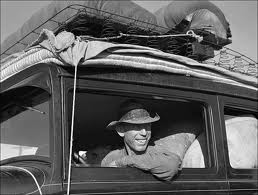This week yet another man who lived in my community took his own life. I am still reeling from the tragic story of a man who could not / would not face the world any longer and left it in the most sudden and horrid way possible. This tragic tale which I heard on the weekend still shocks me to the core – more so -because this occurrence is now not unusual and in fact death by suicide is the number one killer of men under 44 in our country.
How have we as a nation got to a state of such male silence and despair? How is it that our men have become so afraid to speak about their fears, their loss, their pain that so many feel only able to hide in death? What do we tell the children? What will the young children whose father is now gone think/do with their feelings of loss, sadness and despair?
How does this relate to FIFO you may be asking? As reported several weeks ago in the post RUOK? the issue of depression and suicide in FIFO communities is of great concern and a new campaign RUOK? has been launched to address this epidemic amongst Australian FIFO men. For something immediate I offer up today two TED Talks about the issue of vulnerability and shame which in my mind address the issues of why men and women to a lessor degree remain silent. Could it be possible that vulnerability is the key to strength in human beings?
http://www.ted.com/talks/brene_brown_on_vulnerability.html
http://www.ted.com/talks/brene_brown_listening_to_shame.html
To end on a positive note this week another study has been announced that will try in its own way to address the health issues both physical and emotional of FIFO workers and FIFO family members. Curtain University’s Dr Hoath said ” Mandurah and Busselton in WA were chosen to be the focus of the research for their high volume of FIFO workers and because both areas had submitted reports on the issue to a Federal Commission.” He also emphasized that it is not only the adults who are suffering. Saying that “children of FIFO families were more likely to suffer from depression or anxiety and often missed out on schooling to spend time with a returning parent or guardian.” See the report at:
http://www.mandurahmail.com.au/story/1677013/new-study-airs-health-fears-for-mandurah-fifo-workers/
With such a large number of studies being conducted things will change. With growing support organisations like FIFO families opening up more support groups across the country and men beginning to take up the challenge of talking about the issues that they face we can make a difference to not only the lives of our men, our children and ourselves but also our whole community. Let’s do our bit to change the conversation in our homes, our communities and our work place by asking a man or a boy each day – are you ok and waiting silently til they speak.
I’m thinking of getting some bumper stickers made up promoting the new conversation I made up around this issue.
“Aussie men talk about their feelings – that’s a good thing for them and their families.”
What do you think? Do you think it could make a difference? Can you get your man to start talking? Can you make it part of your work place culture for men to talk and potentially then see the link between vulnerability and strength? Let me know if you are already working on this issue in your home, your company or your community.




